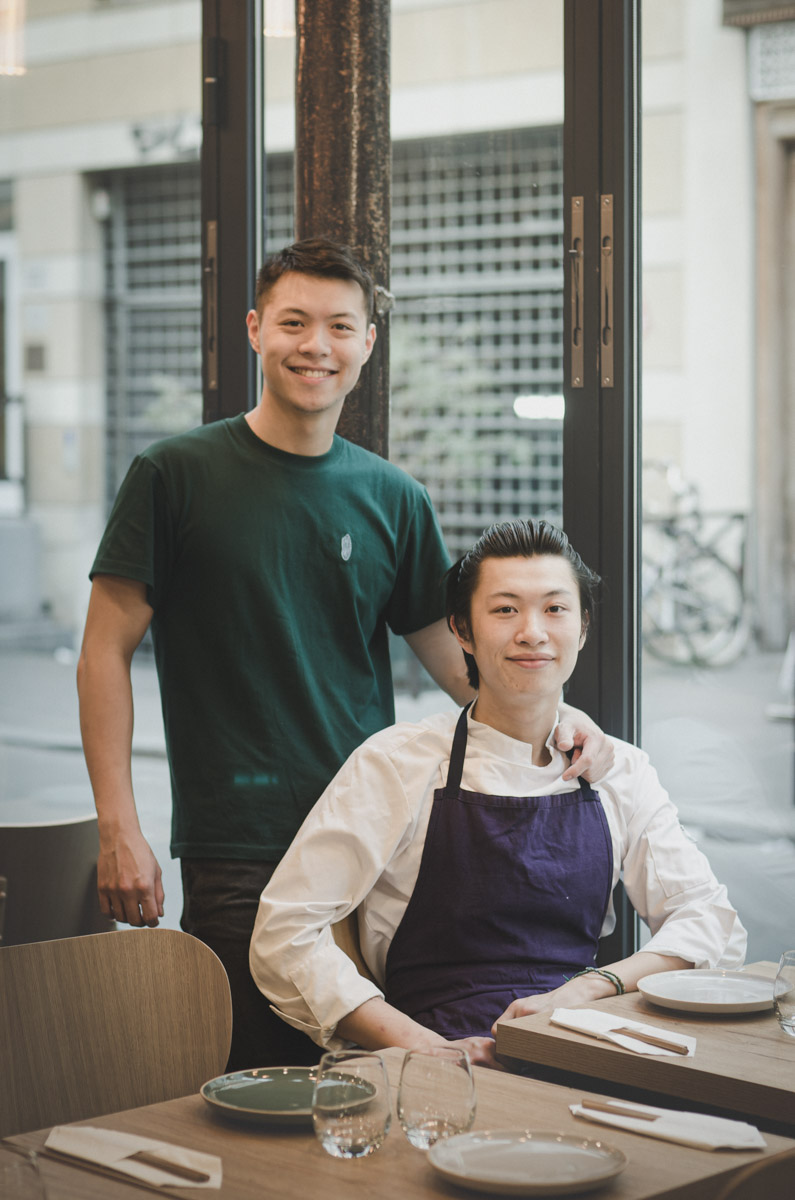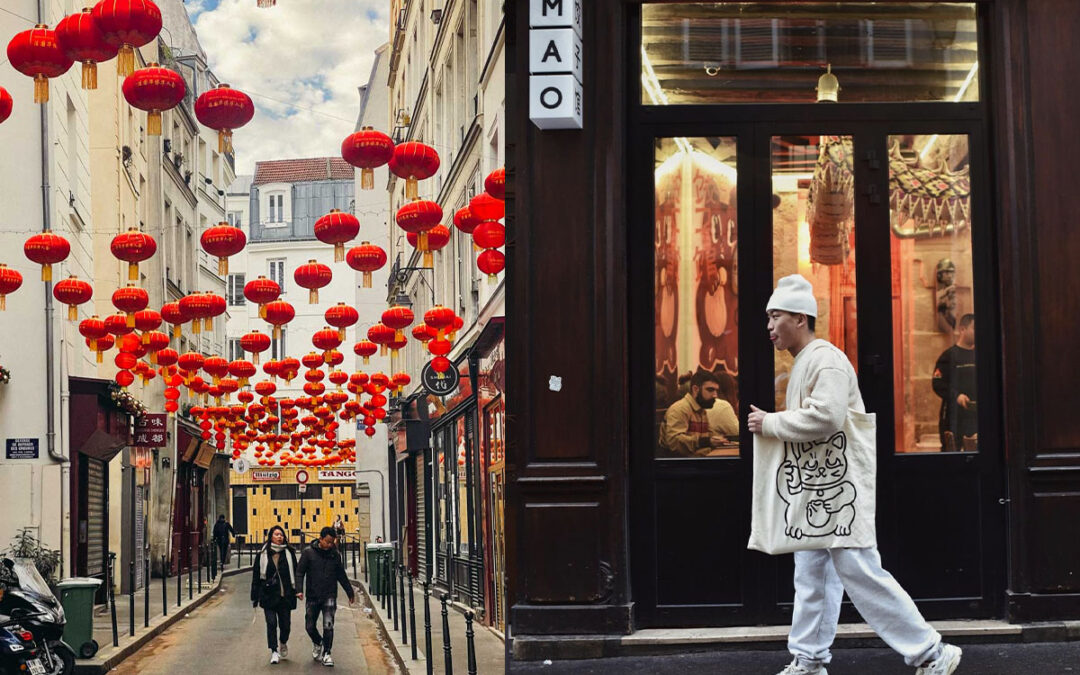Lanterns to celebrate the Chinese New Year 2023 rue Volta 3rd (l.), facade of the Mao Dumpling bar restaurant (r.)
Long withdrawn into itself, the Chinese community of Marais – established in the Arts-et-Métiers district since 1900 – is changing. Little by little, entrepreneurs in their thirties succeed their parents and we are witnessing a spectacular generational and cultural change.
While previous generations were focused on the professions of leather goods, restaurants and traditional caterers, the rising generation is opening restaurants in keeping with the times: Horiz (rue au Maire), Mao dumpling bar (rue Saintonge) and Sweetea's (rue de Gravilliers).
And while their parents expressed little, their children, who grew up in the increasingly “trendy” Marais, no longer hesitate to make their voices heard.

The change is profound. “Our parents never took vacations and they were shocked when I told them that I was taking four days off, just two months after launching my restaurant,” says Alexandre Lin, who took over the business from his parents, changed the decor and transformed the menu to make Horiz a trendy address that is always full.
“The older generations spent their lives working. They passed on to us a taste for effort but that does not prevent us from wanting to enjoy life,” adds the young restaurateur who belongs to a daring generation: “When I announced to my parents that I wanted, with my brother Olivier, transforming the family restaurant, “dusting it off” to do something more current, my parents were worried, they were afraid that I would fail. »

Alexandre and Olivier from Horiz, © Vincent Tchou
Another newly installed restaurateur agrees: “Our parents were very discreet and a little isolated but our generation is different. We are aware that the Marais has been profoundly transformed and we want to participate in this change, while preserving the Chinese identity of the three historic streets of the first Parisian “Chinatown”. We want to make Chinatown more attractive for everyone. »
The progress made can also be measured by the testimony of this sixty-year-old from Marais, a notable member of the Chinese community who – discretion required – wishes to remain anonymous: “I remember that thirty years ago, the elected officials of the neighborhood alerted the Chinese traders because the Primary school teachers had noticed that their children were coming to class tired. The reason ? Most children in the community worked in family businesses. »
Thirty years later, it is clear that these children, supported by their parents, their families in the broad sense (cousins, uncles and aunts) and the entire community, are doing quite well.
Text: Katia Barillot
31.01.23
NEWS, IT'S THIS WAY
Notre-Dame: dismantling of the scaffolding has begun
The gigantic repair project at Notre-Dame de Paris cathedral is coming to an end. The dismantling of the spire scaffolding has begun. It is visible again with, at its top, a rooster which sits in majesty. In ten months, visitors will be able to return to the places whose reopening is planned...
Vote on SUVs: The results in Paris-Centre
Paris voted against SUVs. But only 6% of residents went to the polls. Of the 1 Parisians registered, 374 took part in the ballot. With 532% of votes in favor, the majority expressed their desire to tax these behemoths of the Parisian streets.
For or against SUVs vote on February 4, 2024
In the debate on traffic in Paris, the question of SUVs gives rise to lively discussions. Some advocate a ban because of their environmental impact and their congestion in the city.
NOW ON THE MOOD MARSH
Victor Hugo, the writer with a thousand talents
Born in 1802, Victor Hugo became a social writer, a playwright, a poet, a novelist and a romantic designer. Nicknamed the man-ocean then the man-century, he is a political figure and a committed intellectual. He found success with Notre-Dame-de-Paris in 1831 and with Les Misérables in 1862.
The best tattoo parlors in Marais
Tattooing, an age-old practice, has long been the prerogative of convicts, dock workers, the underworld and sailors. Although it has become democratized, now affecting all profiles and concerning one in five French people, including 16% women compared to 10% men, it still remains taboo due to its definitive and transgressive nature.
Juliette Drouet actress, muse and mistress of Victor Hugo
At 14 rue Sainte-Anastase, from 1836 to 45 and at 12 from 1845 to 48, a few hundred meters from Place des Vosges, lived the muse and lover of Victor Hugo, Juliette Drouet née Julienne Gauvain.







